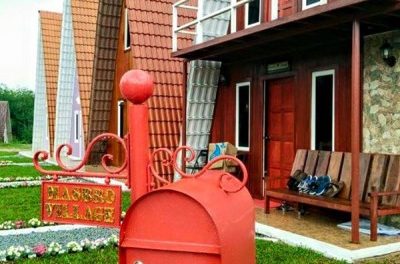Continuing from last week’s topic on ageing society, we take a further look into senior living and the lifestyles of senior citizens. While most of us tend to generalise senior living places as retirement homes, the reality is that there are many different types of living arrangements for senior citizens, especially overseas. Despite being a little behind when it comes to senior living, some Malaysian developers are already in the midst of planning or building housing projects to cater to the senior population.
So, what are the types of senior living that are available in Malaysia?
Independent Senior Living
A typical independent senior living community resident is a person 55 and older who is mentally and physically capable of living alone without skilled nursing or assistance with day-to-day activities. The independent living category encompasses a wide range of housing arrangements, from apartment-style communities to housing co-ops. Generally, though, residents live in their own private dwelling spaces and have access to common areas where they can gather with other members of the community, participate in social activities, and generally live an active lifestyle. Independent senior living communities are also popular among affluent retirees who wish to downsize or travel freely without the burden of managing a home.
Aged Care (also known as Assisted Living)
The most significant difference between assisted living and independent senior living is the care provided. Residents of assisted living facilities – often known as old folk’s homes, nursing homes, or retirement homes in Malaysia – require assistance with daily activities like medication, eating, bathing, dressing, and toileting. Elderly people who have chosen to live in assisted retirement complex will often require more care and support to improve their quality of life. However, that doesn’t mean they are unable to enjoy social activities – they just need a bit more assistance when doing so. Assisted living in Malaysia can also mean home-based palliative care, where the senior citizen continues to live at home but with a personal home health aide or nurse. Although it can be costly, home-based has been proven to greatly improve the quality of life, as well as reduce physical pain and improve their mental condition.
Memory Care
When a senior citizen requires memory care, it is likely that they are already suffering from Alzheimer’s and/or dementia. Such care is long-term, and likely to be carried out until the end of the senior’s life. When a senior is dealing with Alzheimer’s and dementia, they often require attentive and expert care, along with an environment that’s safe and secure. A caretaker may not be able to give a senior the care they need at all hours of the day, and most homes are not built to accommodate the special needs of those with memory loss. That’s why so many families turn to memory care communities, which can provide the needed expert care in an environment that has numerous safety features and supportive staff available around the clock. Assisted living communities with specialized memory care units for seniors with cognitive impairment often feature increased security measures (e.g. locked doors, extra surveillance equipment, on-call emergency services) and may not allow residents to have kitchens in their apartments, due to safety concerns.





